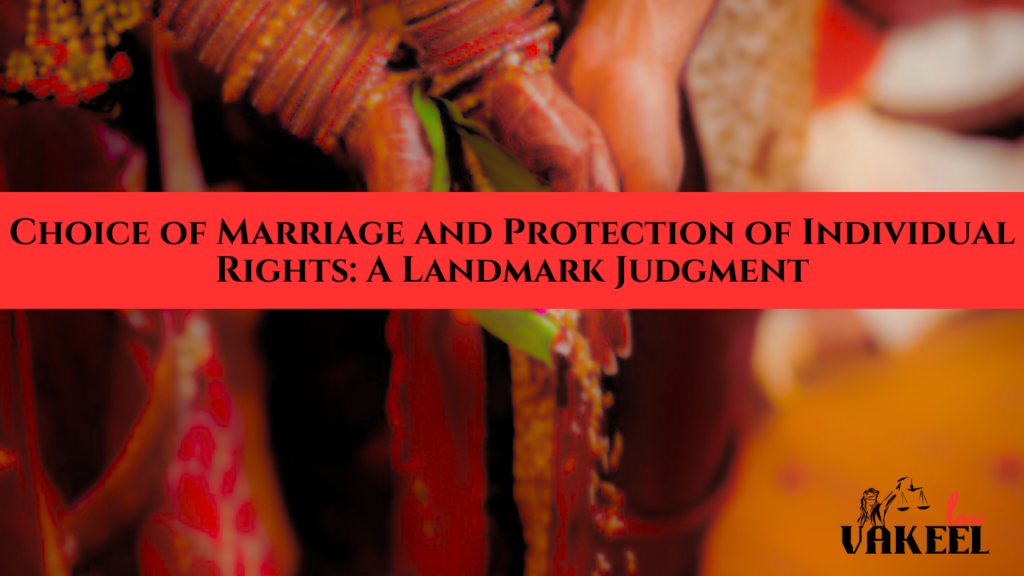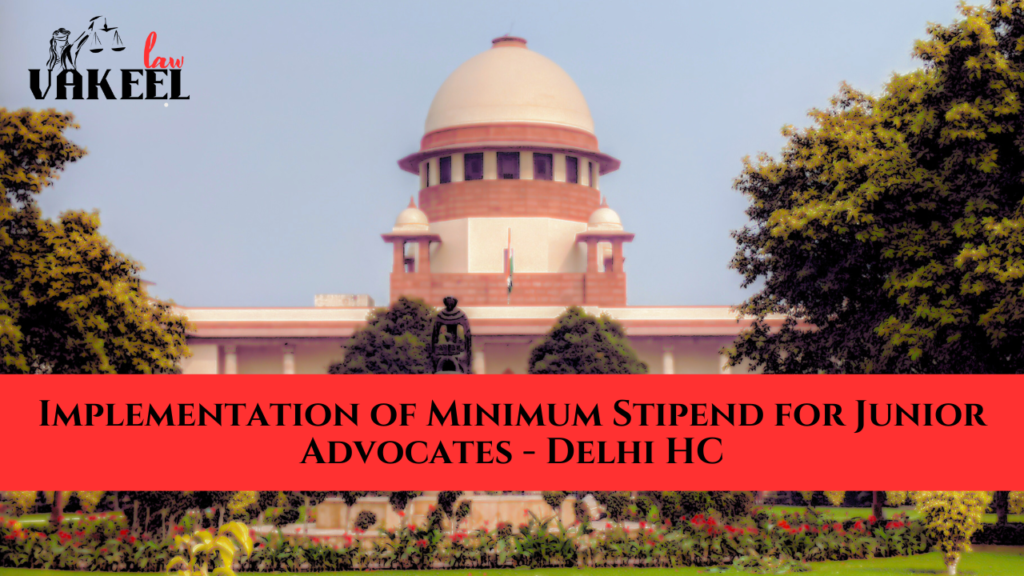In a recent and significant judgment, the Allahabad High Court reaffirmed the fundamental right of individuals to choose their life partner. This decision, grounded in the right to life and personal liberty under Article 21 of the Constitution of India, underscores the judiciary’s commitment to protecting personal freedoms and safeguarding individuals from societal pressures and threats.
The case, Naziya Ansari and Another vs. State of UP and Others (Criminal Misc. Writ Petition No. 9396 of 2024), revolves around the rights of two adults who chose to marry according to their free will. The petitioners, who faced harassment and threats from family members, sought legal protection from the state. The court’s verdict not only quashed the baseless FIR lodged against the couple but also issued clear directives for their safety.
The Facts of the Case
The petitioners in this case, a 21-year-old woman and an adult man, married in April 2024 according to Muslim rites. Their marriage, solemnized in Hyderabad, was recognized by an official marriage certificate issued by the Telangana State Waqf Board. Despite the lawful nature of their union, the woman’s uncle lodged a complaint, and local authorities unlawfully took the woman into custody, handing her over to her family against her will.
The petitioner, in her statement under Section 164 of the CrPC, clearly stated that she married of her own free will. She also highlighted the threats of physical harm, including potential honour killing, made by her uncle. The couple sought legal recourse to prevent further interference and harassment from her family members.
Key Highlights of the Judgment
The Allahabad High Court, in its judgment delivered on June 7, 2024, made several critical observations and issued key directives:
- Right to Choose a Life Partner: The court reiterated that every adult has the fundamental right to choose their partner and that no one, not even family members, can infringe upon this right. This right stems from Article 21 of the Indian Constitution, which guarantees the right to life and personal liberty.
- Quashing of FIR: The court found the FIR lodged under Section 363 of the Indian Penal Code baseless, as the petitioner was an adult and had willingly entered into the marriage. The allegations against her husband were deemed false and an abuse of legal processes.
- Safety and Protection: In light of the petitioner’s statement about the threats to her life, the court issued a mandamus to the Superintendent of Police, Siddharthnagar, and the Station House Officer, Police Station-Bansi to ensure her safety. The court mandated that the petitioners be allowed to live freely without interference from her family or any other individuals.
- Duty of the Magistrate and Police: The court expressed its dismay at the actions of the local authorities, particularly the Magistrate, who failed to act upon the petitioner’s fears of being harmed. The police were also held accountable for not ensuring her safety or taking necessary legal steps against the family member threatening her.
Please refer to the attached PDF for detailed information regarding the High Court’s decision on the choice of marriage and the protection of individual rights.
Protection Against Honour Crimes
One of the most concerning aspects of this case was the fear of honour killing. The court emphasized that no one has the right to harm another individual based on personal beliefs or family honor. The judgment sets a strong precedent for the protection of individuals, especially women, who are often subjected to violence for exercising their freedom to marry a partner of their choice.
The court’s intervention highlights the judiciary’s active role in preventing honour-based violence and protecting the autonomy of individuals in marital decisions. This case serves as a reminder to law enforcement agencies of their duty to safeguard citizens’ rights, especially in sensitive matters of personal choice.
Implications for Future Cases
This judgment is a significant step towards reinforcing the right to marry freely without fear of reprisal or societal pressures. It sets an important precedent for cases involving interference in personal relationships, particularly in instances where individuals face threats from their families or communities. By quashing the FIR and issuing protective orders, the court has made it clear that the rule of law must prevail over social customs or family honor.
Furthermore, this case will likely influence future legal proceedings where individuals seek protection from coercion, intimidation, or violence related to marriage. It strengthens the legal framework for individuals to assert their right to personal liberty and choose their partner without facing unjustified legal or familial consequences.
Conclusion
The Allahabad High Court’s ruling in the Naziya Ansari and Another vs. State of UP and Others case is a landmark judgment that upholds the right of individuals to choose their life partners and live free from undue interference. It reinforces the importance of personal liberty, marital autonomy, and state protection against family or community-driven threats.
For any legal assistance or further details on this matter, feel free to reach out to us at Vakeel Law. Our team of experienced lawyers is here to help you navigate complex legal challenges related to personal rights, marriage laws, and protection from harassment.




